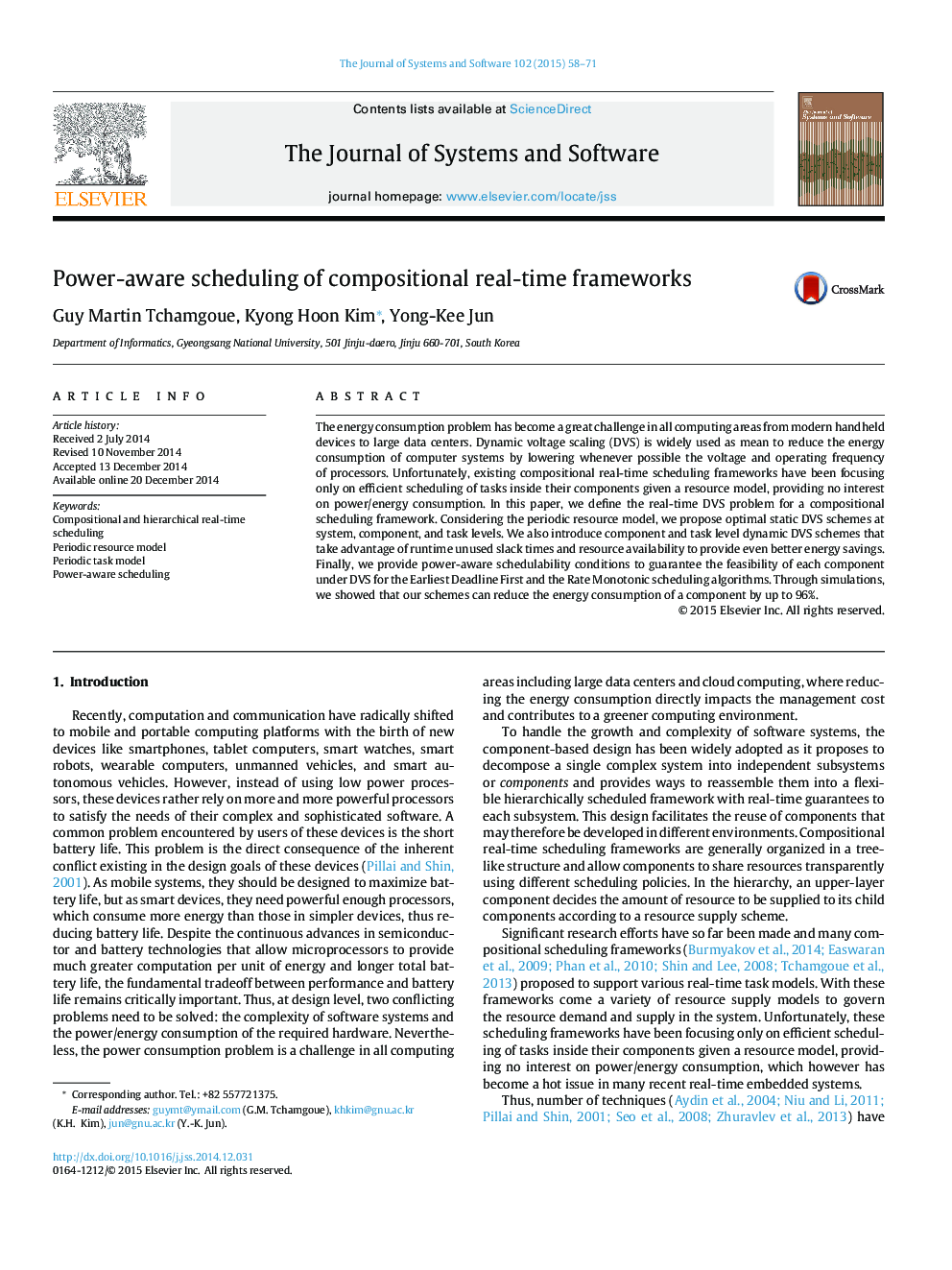| کد مقاله | کد نشریه | سال انتشار | مقاله انگلیسی | نسخه تمام متن |
|---|---|---|---|---|
| 459471 | 696250 | 2015 | 14 صفحه PDF | دانلود رایگان |
• We define the real-time DVS problem for compositional scheduling frameworks.
• We provide optimal static DVS schemes at system, component, and task levels.
• We introduce dynamic component and task level DVS schemes for finer energy savings.
• We propose power-aware schedulability conditions for components under EDF and RM.
• The proposed schemes demonstrated an energy saving capability of up to 96%.
The energy consumption problem has become a great challenge in all computing areas from modern handheld devices to large data centers. Dynamic voltage scaling (DVS) is widely used as mean to reduce the energy consumption of computer systems by lowering whenever possible the voltage and operating frequency of processors. Unfortunately, existing compositional real-time scheduling frameworks have been focusing only on efficient scheduling of tasks inside their components given a resource model, providing no interest on power/energy consumption. In this paper, we define the real-time DVS problem for a compositional scheduling framework. Considering the periodic resource model, we propose optimal static DVS schemes at system, component, and task levels. We also introduce component and task level dynamic DVS schemes that take advantage of runtime unused slack times and resource availability to provide even better energy savings. Finally, we provide power-aware schedulability conditions to guarantee the feasibility of each component under DVS for the Earliest Deadline First and the Rate Monotonic scheduling algorithms. Through simulations, we showed that our schemes can reduce the energy consumption of a component by up to 96%.
Journal: Journal of Systems and Software - Volume 102, April 2015, Pages 58–71
